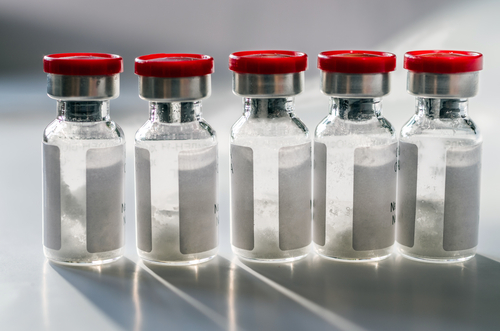PhaseBio Advances New Phase 2b Trial to Test PB1046 in Patients with PAH
Written by |

PhaseBio Pharmaceuticals started dosing its investigational compound PB1046 in patients with pulmonary arterial hypertension (PAH) in a Phase 2b clinical trial.
The first patient to receive the therapy was dosed by Murali Chakinala, MD, professor of medicine at the Washington University School of Medicine (WUSM), and director of the WUSM and Barnes-Jewish Hospital Pulmonary Hypertension Care Center.
The trial (NCT03556020), which is still recruiting participants, is expected to enroll approximately 60 PAH patients in eight clinical sites in the United States. Participants will be randomly assigned to receive a weekly subcutaneous injection of a low or high dose of PB1046.
PB1046 is based on PhaseBio’s proprietary elastin-like polypeptide (ELP) technology designed to increase the stability and absorption of the therapeutic compound, enabling fewer administrations while maintaining its activity. PB1046 results from the fusion of the naturally occurring vasoactive intestinal peptide (VIP), a potent vasodilator, with the ELP biopolymer.
In addition to its ability to improve blood vessels’ relaxation, PB1046 may also suppress the adverse remodeling of blood vessels and increase cardiac contractility and relaxation.
“PB1046 leverages our ELP technology to harness the positive therapeutic effects and extend the half-life of native human VIP, which has previously been limited in its application as a therapeutic by its rapid degradation and potential for gastrointestinal side effects,” John Lee, MD, PhD, chief medical officer of PhaseBio, said in a press release.
In the trial, researchers will evaluate the effects of PB1046 on pulmonary blood pressure and exercise tolerance, as well as overall cardiac and respiratory functions in PAH patients. They will also evaluate the safety profile of the investigational therapy in this population.
Ask questions and share your knowledge of PH in our forums.
The trial was designed to cover important clinical endpoints commonly used by the U.S. Food and Drug Administration (FDA) as the basis for approval of other PAH drugs, namely exercise capacity.
“PB1046 has been generally safe and well-tolerated in early clinical trials and we are excited to investigate its potential benefits in PAH, a rare disease with high unmet need for innovative therapies,” Lee said. “We look forward to reporting results from the Phase 2b trial in the first half of 2020.”
To date, PB1046 has been tested in more than 60 patients with hypertension or clinical history of cardiac disease in three Phase 1/2 clinical trials (NCT02808585, NCT01873885, and NCT01523067) in the U.S. In these studies, no medication-related serious adverse events were reported.
PhaseBio has received orphan drug designation for PB1046 by the FDA as a treatment for patients with PAH — WHO Group 1 Pulmonary Hypertension — and cardiomyopathy associated with dystrophinopathies (muscle diseases).
PB1046 is also being evaluated in a Phase 1 clinical trial (NCT03315507) in PAH patients to assess its safety, tolerability, and overall stability, and distribution in the body.
The new Phase 2b trial of PB1046 in PAH patients is being supported in part by a Fast-Track Small Business Innovation Research grant from the National Heart, Lung, and Blood Institute of the National Institutes of Health (NIH).



